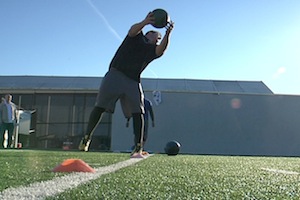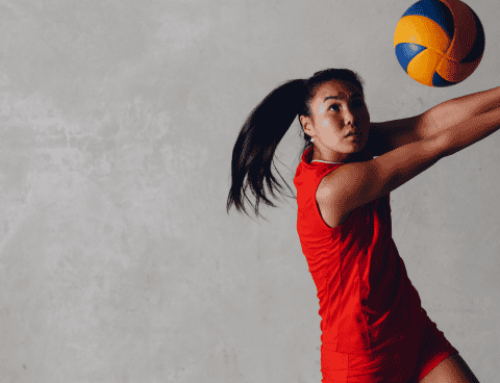Master The Five Pillars of Athletic Mental Toughness, Part 1: Building Confidence
Want to take your game to the next level and reach your full athletic potential? Physical training will only get you so far. Success in sports depends on several mental toughness variables. But although mental toughness is critical for sport success, it is often misunderstood as part of athletic development. How you develop your mind will directly impact how well you play your sport.

Completing regularly scheduled workouts is one way to build confidence.
Confidence
Confidence and athletic success reinforce each other. When you play well, your confidence increases; when you improve your self-confidence, you tend to play better.
You can do a number of things to improve and maintain your confidence, including:
- Goal Setting: Set controllable goals that are specific and measurable, and keep track of your progress. Set daily, short-term, mid-term and long-term goals. You will be creating a goal ladder to future success.
- Consistent, Healthy Training: There are no shortcuts to success. Hard work, healthy living, motivation and perseverance will lead to greater self-confidence.
- Positive Self-Talk: What you say to yourself has a direct impact on how you feel about yourself. If you tell yourself you stink, your confidence will suffer. Positive and productive self-talk will boost your confidence.
Dr. Chris Stankovich is a licensed professional clinical counselor and the founder of Advanced Human Performance Systems, a counseling and performance center based in Columbus, Ohio. He offers performance-enhancement assistance to athletes, teams and coaches in areas of athletic improvement, wellness, leadership, life skills and career development. Learn more about Dr. Stankovich’s work by visiting his website, drstankovich.com.
RECOMMENDED FOR YOU
MOST POPULAR
Master The Five Pillars of Athletic Mental Toughness, Part 1: Building Confidence
Want to take your game to the next level and reach your full athletic potential? Physical training will only get you so far. Success in sports depends on several mental toughness variables. But although mental toughness is critical for sport success, it is often misunderstood as part of athletic development. How you develop your mind will directly impact how well you play your sport.

Completing regularly scheduled workouts is one way to build confidence.
Confidence
Confidence and athletic success reinforce each other. When you play well, your confidence increases; when you improve your self-confidence, you tend to play better.
You can do a number of things to improve and maintain your confidence, including:
- Goal Setting: Set controllable goals that are specific and measurable, and keep track of your progress. Set daily, short-term, mid-term and long-term goals. You will be creating a goal ladder to future success.
- Consistent, Healthy Training: There are no shortcuts to success. Hard work, healthy living, motivation and perseverance will lead to greater self-confidence.
- Positive Self-Talk: What you say to yourself has a direct impact on how you feel about yourself. If you tell yourself you stink, your confidence will suffer. Positive and productive self-talk will boost your confidence.
Dr. Chris Stankovich is a licensed professional clinical counselor and the founder of Advanced Human Performance Systems, a counseling and performance center based in Columbus, Ohio. He offers performance-enhancement assistance to athletes, teams and coaches in areas of athletic improvement, wellness, leadership, life skills and career development. Learn more about Dr. Stankovich’s work by visiting his website, drstankovich.com.












